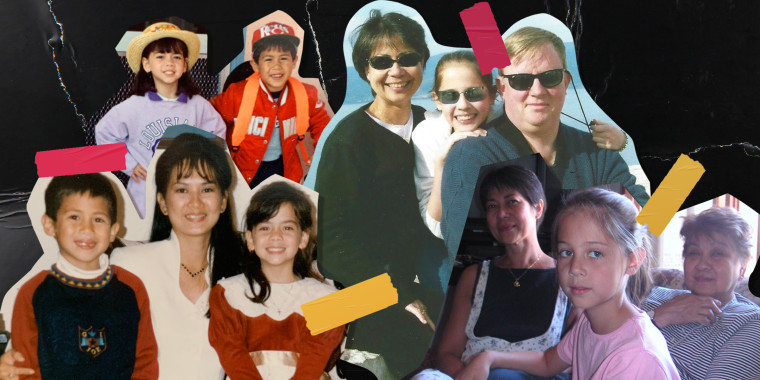During Asian Pacific American Heritage Month, TODAY is sharing the community’s history, pain, joy and what’s next for the AAPI movement. We will be publishing personal essays, stories, videos and specials throughout the entire month of May.
I'll never know exactly how much privilege my face has afforded me, though I've often wondered about the magnitude. No stranger has ever yelled a racial slur at me, but at a previous job a client spoke poorly of Filipinos not knowing half my family is from there. Schoolmates never pulled their eyes sideways at me, but one did ask if my mom was my nanny and tried to convince me I was adopted. In the wake of the Atlanta spa shootings that left eight people dead, including six Asian American women, a few friends have texted to see how I'm doing. But over the years, so many friends have said they don't consider me Asian.
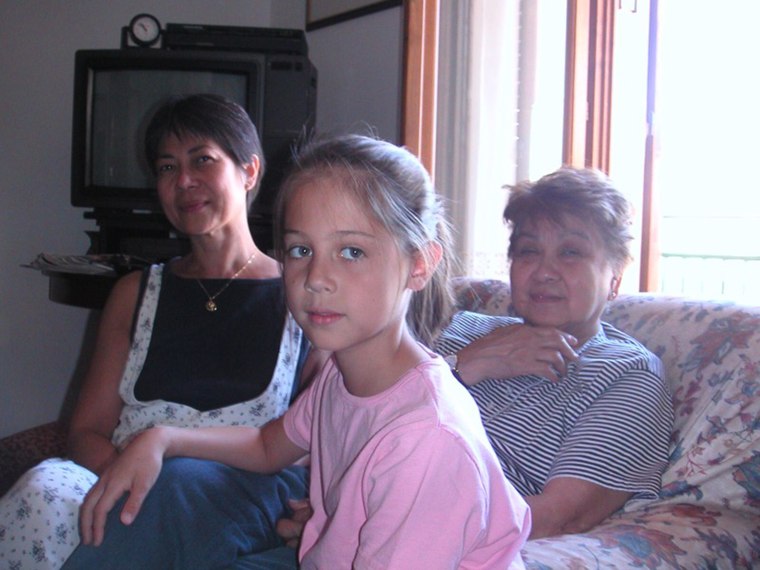
With or without a pandemic that's prompted a surge in anti-Asian violence, many mixed-race Asian Americans feel daily guilt, shame and confusion over where they belong. Of course, this internal struggle isn't worse than the vitriol Asian people have faced in the U.S. since the 1850s. But the pain we feel about all of it is acute — and often followed by a sense of obligation to stay quiet. In my case: Why should the perspective of a woman who looks white disrupt a sea of other Asian voices deservedly demanding space?
Melea McCreary, a fellow half Filipino and broadcast producer at TODAY, wrote in a recent Instagram post that while her "face might be a puzzle ... it is not a target." She mentioned the surprised reactions she gets from people when they find out her racial background, and the unwelcome questions until they figure it out.
"Now when our community is grieving these senseless murders and acts of violence, there’s an ugly little voice inside my head that wonders if my grief belongs. If my tears are justified," she wrote.
In a conversation for TMRW, Melea and I, whose mothers both emigrated from the Philippines, mulled over our experiences passing as another race when the community that's part of our DNA is being targeted for the way they look.
Melea McCreary: If I am biracial, should I really be grieving as hard and should I really be feeling these many big feelings about what's going on? That launched a second tidal wave of emotions. There was a bit of an identity crisis, which was exacerbating all my other big feelings that, as an Asian American, I'm not used to having or verbalizing.
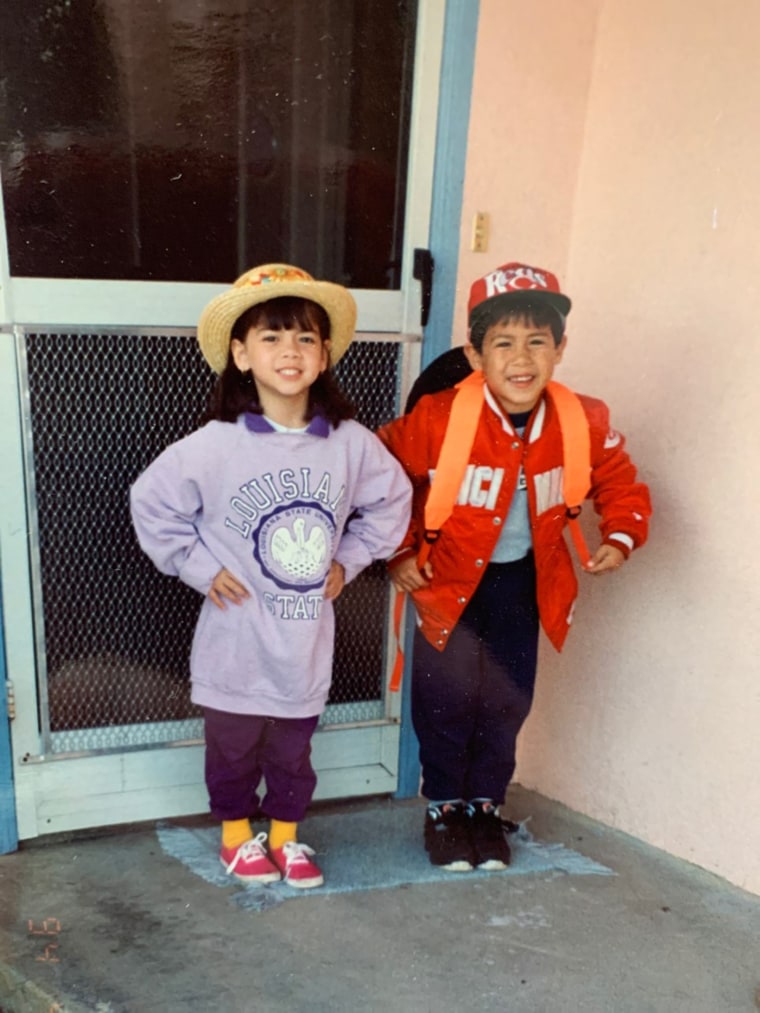
Maura Hohman: The identity crisis is just so real. Obviously the first thought is, 'Holy sh--, it's Asian women being targeted,’ and so many of the people I've held most dear in my life are Asian women. But at the same time, I'm completely seen as white by the outside world. When I leave the house, I'm safe because of my race, but there's a very real feeling of being scared for other people. I feel like I'm not entitled to feel scared or angry for myself.
"I sometimes wonder if I should only be expected to feel 50% of it since 'on paper,' I’m only 50% Asian."
Melea McCreary
MM: People are being targeted for a white stereotype of what Asian features look like. I'm not a clear target. Obviously, that part of me understands that is a privilege right now. There were a lot of times where I was almost reprimanding myself, 'Who are you to feel like you need a mental break when you're not someone who deals with these things on the regular?'
I feel grounded in the fluidity of being biracial and being very comfortable there. But all it takes is (an uptick in racial violence) like this to make that ground shift underfoot, because even though my community is under attack, my looks might not be. I've been trying to find the balance even though grief is not something you can rationalize. I sometimes wonder if I should only be expected to feel 50% of it since 'on paper,' I’m only 50% Asian.
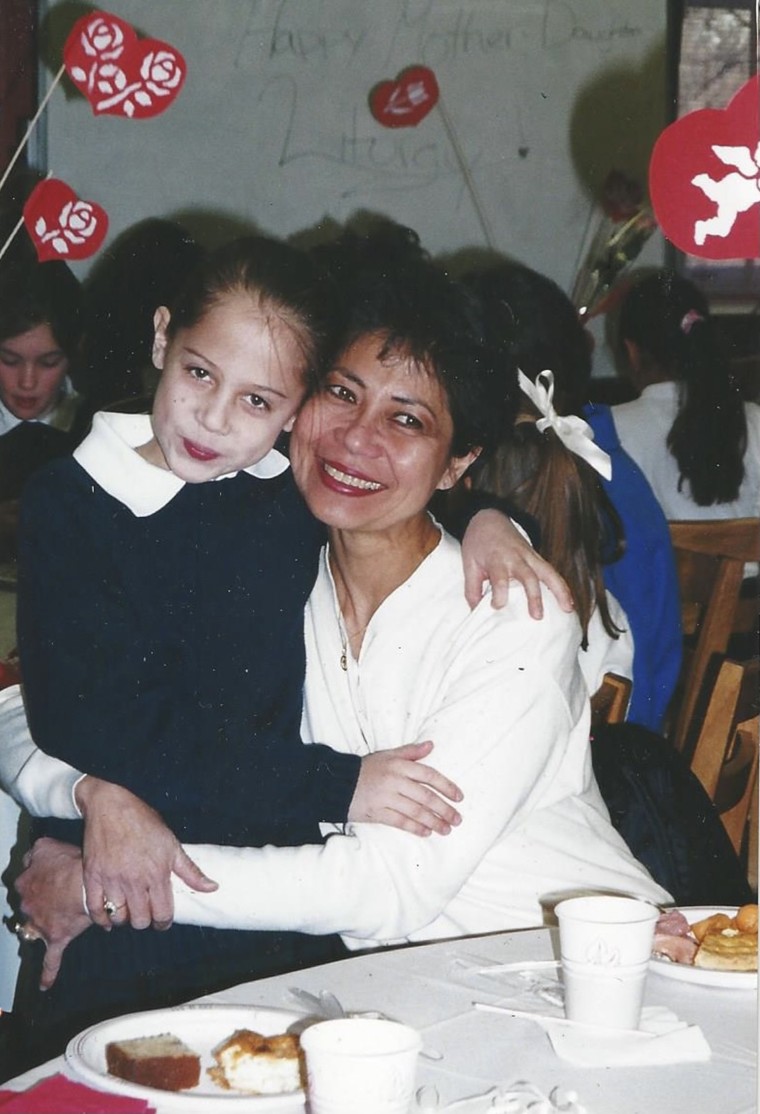
MH: As a white-passing person, I talk about being an undercover minority with my friends all the time because I hear what people say when they don't think there's an Asian person in the room. Over the past weeks, I've been having bits and pieces of memories from my childhood where it crystallized, 'Oh, the world sees my mom differently from me.'
MM: We didn't have conversations about racism in my household growing up. My mom made sure there was a lot of Filipino culture in our house, but we didn't talk about any of the tough stuff. I think when people made jokes when I was younger, I probably laughed along because I didn't know what they were saying was at my expense. I don't think it was until I got a little street smarter did I realize sometimes my biracialness was being used to make me feel small in very, very quiet ways.
MH: I remember my mother at one point telling me when I was an adult, you're a woman of color and you should wear that with pride, even if people don't see you as that. It makes her so happy that Filipino culture is such a huge part of how I identify. But I feel like the only thing I'm entitled to claim is ‘white-passing,’ and I've come to realize that's not even a strong enough term for what I am.
MM: It's very Disney movie-ish, but it's what's in your heart. It's how you feel about where you come from, and that all sounds good on paper. But that doesn't necessarily change the way I feel overnight. This is a life of coming to terms with that. I think that's why I've actually wished for so long to appear more Filipino, whatever that means.
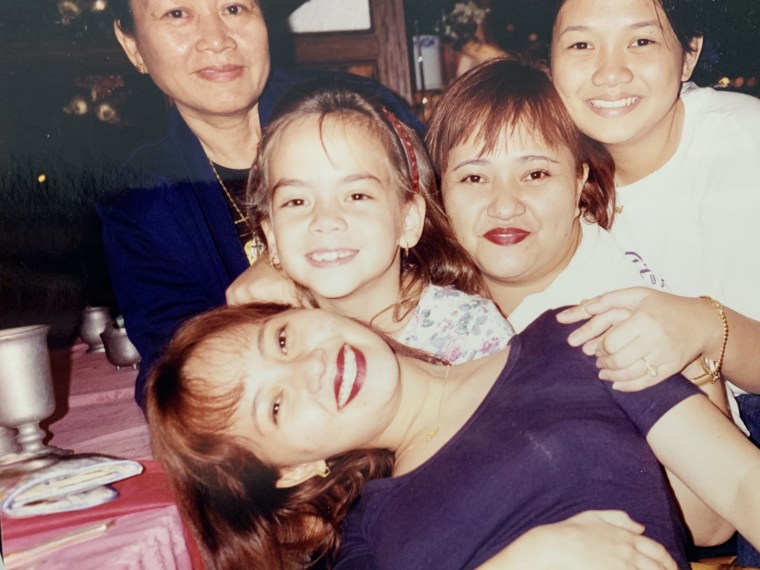
We have as biracial women, especially Asian American women, a lot of identity issues and then you get a lot of these dismissive comments, 'You don't look Asian.' And then you have the gross people who, all of a sudden, it changes. They're like, 'Oh, I like Asian girls,' and you're like, 'You're disgusting.'
MH: I wish I could be someone who doesn't feel constantly worried about the amount of times I bring up that I'm Filipino because I don't want to be a white person who's constantly talking about it, but it's a huge part of the way I grew up. I relate more to the upbringings of people of color and immigrants than I do to my white friends. I'm like, 'Wait your parents let you do that?' Never in a million years.
Related:
MM: Steven Yeun, the guy who was in "Minari," in this wonderful interview with NBC Asian America, talked about how Asian American is becoming its own culture, and that's how a lot of mixed race people identify: I'm not Asian, I'm not American, I'm Asian American, and I'm comfortable being this little subsection. We're a community made up of people who consider themselves in the gray area.
MH: I'm trying to work on telling myself I am allowed to have an opinion, I'm allowed to feel things. I want to tell people the way I look doesn't define me. You weren't in my house growing up. Just because it's hard for you to wrap your mind around when you look at me, doesn't mean I can't be an Asian woman. It's the hurt of knowing that this has happened to people who resemble my family, then there's guilt reinforced by people who don't see me as having a connection to that group of people. It's certainly not harder in any way than the people grappling with just pure fear and anger. But it is multilayered.
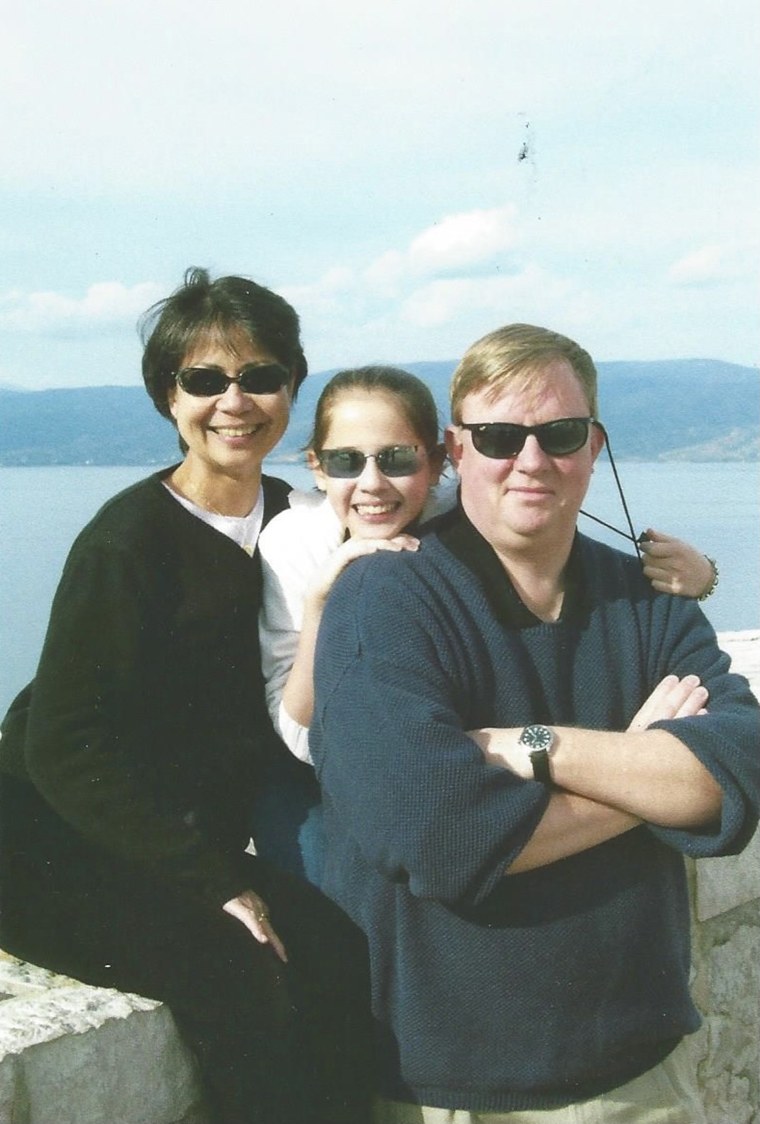
MM: I want people to know biracial Asians are still Asian. Just because on paper we might be 50% of something doesn't mean we can't feel like we wholly belong to a people and to a community. To all those people who've said, 'Oh, you're only half, you're not really Asian, that's basically white,' this would be my big middle finger to them.
We put pressure on ourselves to somehow make up for the 50% that we're lacking. It feels like you're missing something. Talking to a lot of biracial friends, we all share the same self-consciousness, guilt, uncertainty, so there has to be a common thread. We're all raised in different places, we all have something different, but that similar feeling has to come from something in society.
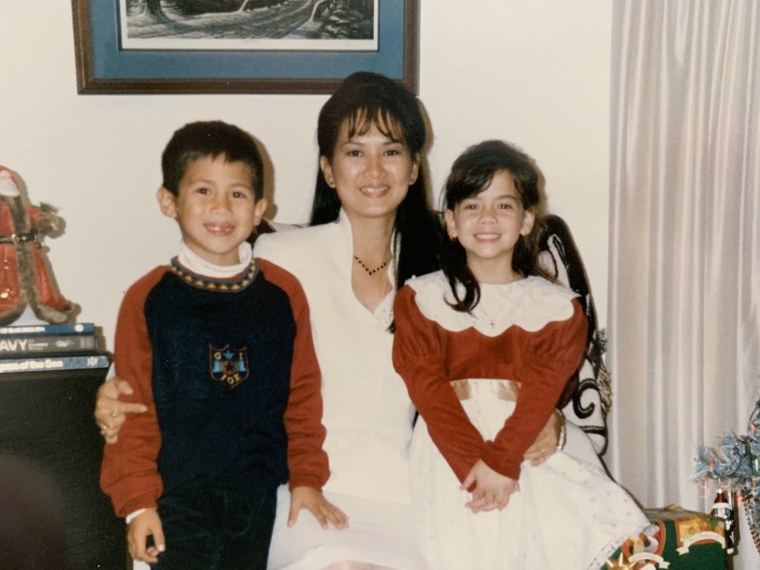
MH: It's such a societal compulsion to identify people by race. I think because we don't have an immediate answer to that question, it makes us feel less than. Not fitting into one thing means you're the wrong fit. It's the poor categorization of the society that we're living in that makes us feel like those experiences are not relatable.
